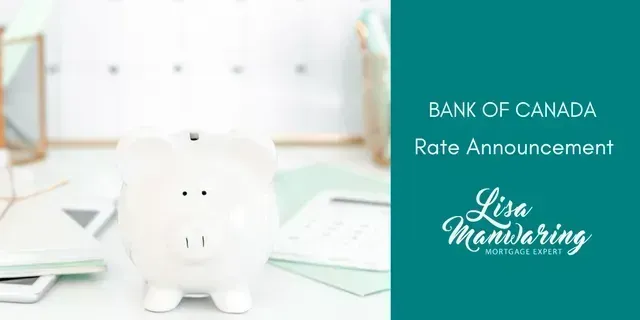A Conversation About Mortgage Pre-approvals
Thinking of buying a property, but don't know where to start? Well... that's where a mortgage pre-approval comes in. Start here. Just like you wouldn't go into a restaurant without having enough money to buy your meal, so you shouldn't start shopping for a home without an understanding of how much you can afford. So let's have a conversation about a mortgage pre-approvals so you can get this house hunting party started.
Although a pre-approval is the best way to get started, we have to be honest about what a pre-approval is and what it's not.
Not Magic. Not Binding.
Let's start at the beginning and dissect the word pre-approval. Pre means before, in advance of, or prior to, and in this case means before the approval. A pre-approval is not an approval, let me say that again (in italics) for emphasis, a pre-approval is not the same as an approval. It's not a guarantee of financing. it's not magic, and unfortunately it's not binding. There are a number of factors that come into play after the pre-approval is in place that can derail your dreams of homeownership.
- as a mortgage approval requires a property to be scrutinized, and a pre-approval doesn't look at any property, it can't be guaranteed.
- as your employment status can change after a pre-approval, all employment documents have to be verified as part of the approval process.
- a secondary credit report can be pulled by the lender or insurer after the pre-approval is in place, if there are discrepancies, they could decide not to proceed with financing
- mortgage rules can change and sometimes come into effect with no grandfathering.
So What Good is a Pre-Approval Then...
A pre-approval is simply a formalized gathering of your ducks, and putting them in a row. It won't guarantee you will get the mortgage, but it will certainly uncover any major obstacles that might be in your way. Consider a pre-approval a pre-screening, where we take a look at your employment, credit history, and your downpayment, and figure out the maximum mortgage amount you can qualify for. We will also have a look at all the mortgage options available to you on the market, so you can decide in advance what product meets your financing needs.
Obstacles, like what? Well, the truth is, you only know what you know, said in another way, you don't know what you don't know. Did you know that they figure about 10-20% of credit reports have some kind of error on them. By taking a look at your credit report as part of the pre-approval process (instead of when you have already found the house of your dreams), you have time to fix any errors before hand. This might not sound like that big of a deal, but it could be the difference between getting financing or not.
A pre-approval usually comes with a rate-hold, this is a good thing. Rates are like gas prices, they fluctuate and go up and down from time to time. As part of taking a preliminary look at your mortgage application, lenders will typically offer a rate hold for 90-120 days on a specific mortgage term. This means that if you find a property to buy in the allotted time, even if rates have gone up in the meantime, you will get the rate that was guaranteed. What happens if rates go down, well... you get the lower rate. It's a win win.
It's a Process
Buying a home is a process, a process that has a lot of steps that come into play. A pre-approval is one of the first steps you take. A pre-approval allows you to collect all your documentation ahead of time, handle any obstacles that may come up, have a look at your mortgage options, secure a rate hold, and will give you piece of mind as to the next steps in the process. Regardless if this is your first time buying a place or your twentieth, a pre-approval is the best place to start. Even if it doesn't guarantee you will get the mortgage in the end.
So if you are thinking about buying a home, let's get started, I would love to help you secure a pre-approval. And if for some reason you are faced with some obstacles, I will help you get on track. Contact me anytime to get started!
RECENT POSTS






